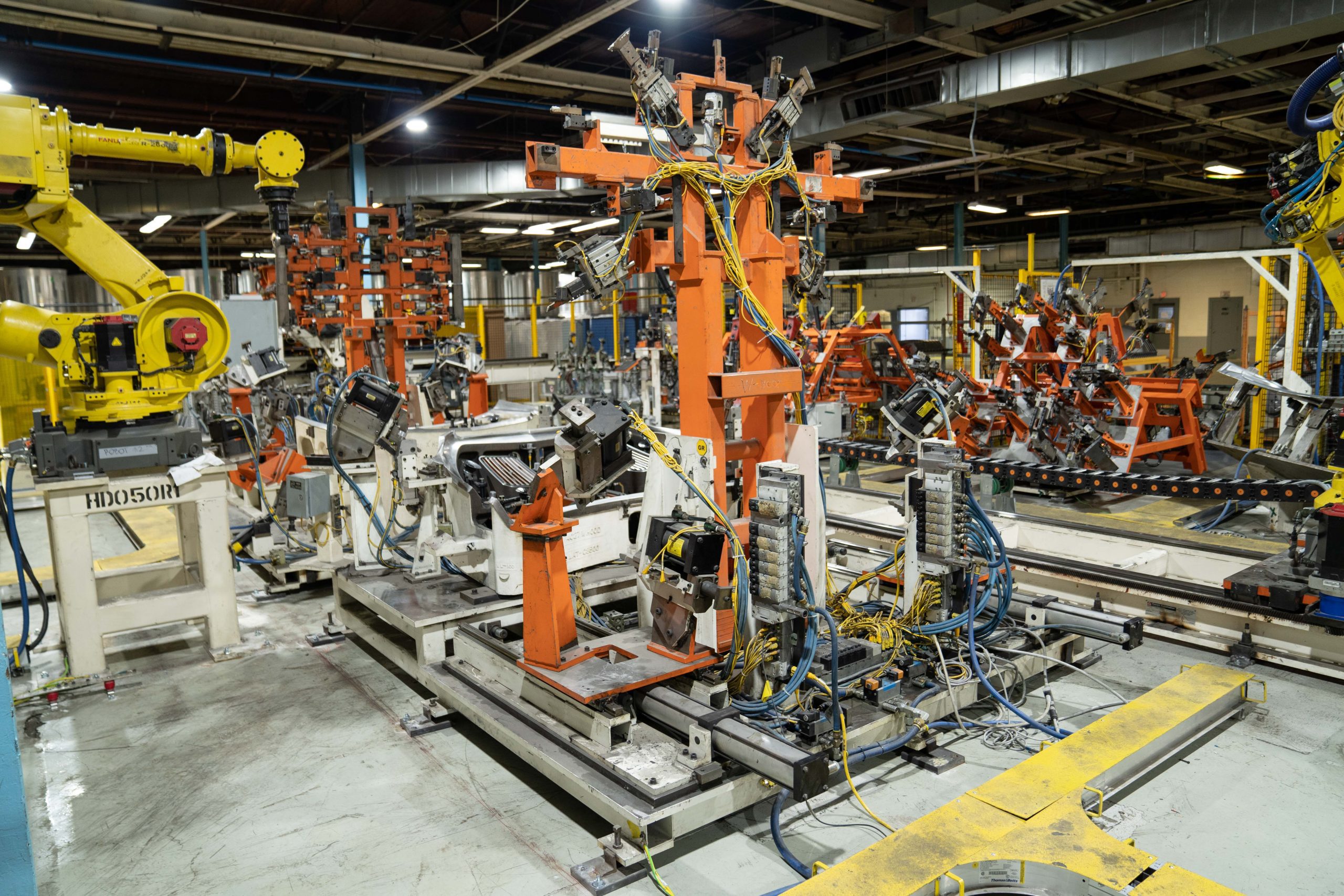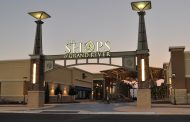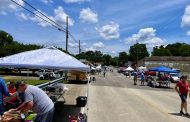By Tanna M. Friday, sponsored content
Alabama continues to be on the move with a thriving workforce, robust infrastructure business-friendly policies, and a pursuit of innovation. It remains in the top three auto exporting states in the nation, complete with automotive suppliers and automation building facilities to support Alabama’s booming automotive industry.
NRTC Automation, founded 2011 in Tilbury, Ontario, opened its doors to the Birmingham area to deliver high-value industrial automation and manufacturing equipment solutions to the world’s most respected automotive companies. From decommissioning and tear outs to industrial robotic training services and custom flexible work cells, NRTC is the key to integrate automation into workplaces. With personalized training and custom-built designs, NRTC Automation is the destination for all industrial automation and manufacturing equipment services.
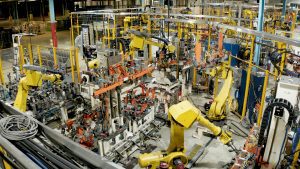 Since April 2019, NRTC Automation is dedicated to their goal to be the leader in providing one-stop industrial automation solutions locally and internationally.
Since April 2019, NRTC Automation is dedicated to their goal to be the leader in providing one-stop industrial automation solutions locally and internationally.
“NRTC Automation began offering decommissioning services to our customers,” says Dan Hill, Vice-President and General Manager. Decommissioning, Hill explains, occurs when a product model reaches the end of a life cycle. It is then removed in preparation for a new line of equipment. “We work with OEMs such as Mercedes and Toyota, and Tier 1 & 2 Suppliers such as Magna International to decommission existing lines from their facilities to make room for more incoming work.”
NRTC Automation offers comprehensive business solutions to its customers including decommissioning and tear out services, automation services and custom-built work cells, service parts manufacturing, equipment sales, engineering, training, and robot refurbishing.
“Each business unit serves a specific purpose, but when combined offers customers a one-stop solution,” says Hill. “In addition to our decommissioning and removal services, NRTC offers automation services which includes the design and production of automation cells. This Business Unit goes hand-in-hand with our engineering and training service solutions. Furthermore, our robot refurbishing takes place after decommissioning. After removing old robotic equipment, along with any parts that have value, we clean, repaint, and refurbish the equipment and parts. This allows us to offer our customers a 50 to 60 percent savings on just equipment or automated cells.”
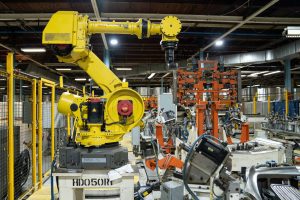 The NRTC Automation locations specialize in business solutions. “Our Tilbury, Ontario location provides automation and equipment sales,” says Hill. “This facility located on Carson Road specializes in service parts manufacturing, engineering services, and automation. Our recent purchase of a new 100,000 square foot warehouse facility on Fleming Road will provide equipment warehousing and equipment sales.
The NRTC Automation locations specialize in business solutions. “Our Tilbury, Ontario location provides automation and equipment sales,” says Hill. “This facility located on Carson Road specializes in service parts manufacturing, engineering services, and automation. Our recent purchase of a new 100,000 square foot warehouse facility on Fleming Road will provide equipment warehousing and equipment sales.
According to Hill, decommissioning does not just include demolition, but rather selectively removing equipment in a way that equipment can be salvaged and resold, resulting in a sustainable and environmentally safe operation.
“Typically, before NRTC Automation, companies would perform a demolition that includes removing equipment and placing it in a dumpster,” says Hill. “NRTC Automation salvages any robots, weld controllers, electrical components, processing equipment, and sometimes fencing and guarding, while the rest is scrapped and hauled away. From an environmental standpoint, NRTC Automation comes into facilities in such a way that does not damage the building while salvaging the equipment, which results in a more selective, methodical approach to removing equipment from a facility.”
NRTC Automation has continued to evolve into a company to make the best use of salvaged equipment while providing multiple services to its customers.
“This company began with the concept of decommissioning,” says Hill. “We discovered that if we provide automation solutions to our customers while building automation cells, we can build these cells with our own salvaged and refurbished equipment. We save our customers 50 to 60 percent for any automated cell we build as opposed to purchasing new equipment.”
According to Hill, NRTC Automation will supply automotive-related parts manufacturers and build automation cells to perform those processes. Automation cells can be used in any type of processing, including automotive, food processing, medical, packaging, and much more.
“We provide solutions to overcome the customer’s hurdles,” says Hill. “For example, we are in the process of providing a solution for a customer in palletizing and building racking. These services are generally performed by employees working in a repetitive motion, which could potentially cause injuries. The process of automation replaces the dangerous types of situations and positions that can effect humans faced with ergonomic challenges.”
This is where the engineering side of the business comes into play. “The engineering team will begin a discussion about finding a solution to a problem, incorporate CAD data, dialogue on previous concept solutions or ideasto process the end item,” says Hill. “From there, NRTC Automation will design and build a concept to produce an automation cell. It’s simply an engineering design process dialogue with the customer until we engineer a solution that can meet their needs.”
“We want to be the one source for all our customers’ automation/equipment needs,” adds Hill. “There are many companies that offer engineering support services, build cells, or provide demo services. I don’t know of one company that offers decommission, equipment refurbishment, engineering, and automated cell build, as well as prototype/service part manufacturing. We strive to offer the one-stop solution.”
To put it succinctly, NRTC Automation will design the line, perform installations, remove unwanted equipment, resell the equipment, provide manpower and the support to commission it, as well as provide robotic training to operate and program the line.
“There are plenty of companies that specialize in either one or maybe two out of our five business units, but they don’t offer all five services in the industry like NRTC Automation,” says Hill.
NRTC Automation is working with statewide organizations such as AIDT, who provides quality workforce development for Alabama’s new and expanding businesses.
“AIDT is coming to our Birmingham facility, along with 48 local applicants,” says Hill. “We are looking to hire up to ten of those applicants to join our team.”
In addition to hiring locally, Hill shares that NRTC Automation wants to make an impact in Alabama. According to Hill, building a strong workforce is key in the robotic industry.
“We are happy to donate any equipment to support an education program in the interest of robotics,” says Hill. “We are willing to partner with any organization who would like to help further that knowledge. Ultimately, it benefits everyone in the long run. The whole industry is in need of robotic programmers. NRTC Automation would love to partner or work with anyone and support them with the equipment to help develop that workforce.”
“We appreciate the hospitality and support we have received in the community,” says Hill. “We are willing to donate, sponsor, and help strengthen the ties here. We not only want to grow our business, but also become a long-term partner in the community.”
NRTC Automation is the source for your automation needs. If you are a local manufacturer, visit their website to learn more about how they can help you grow your business with automation.



